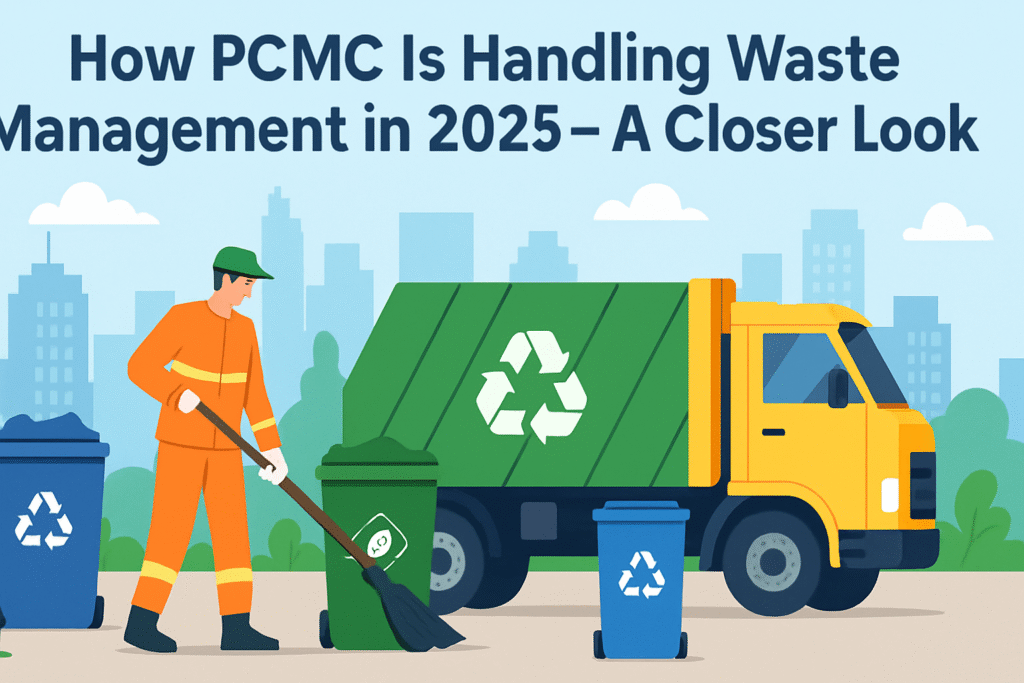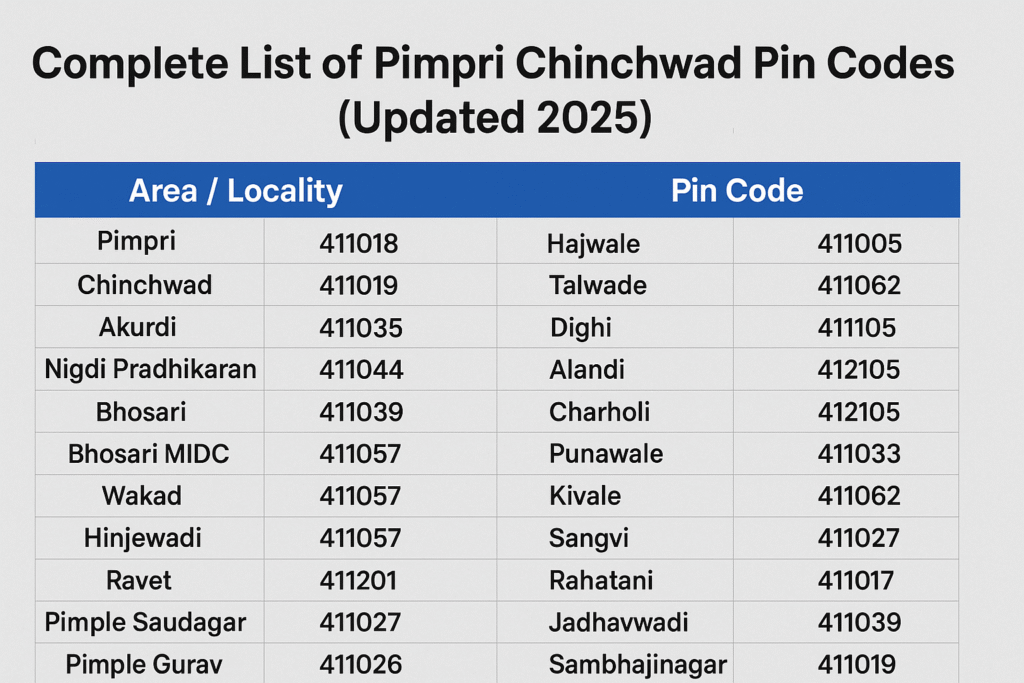In 2025, the Pimpri-Chinchwad Municipal Corporation (PCMC) is stepping up its efforts in sustainable waste management through scientific processes, digital tools, citizen engagement, and innovative local initiatives. Waste handling in a growing urban area like Pimpri-Chinchwad is a major challenge, but PCMC is using a multipronged strategy to tackle it efficiently.
1. Scientific Waste Processing at Moshi Depot
The Moshi garbage depot remains the central hub for waste management in PCMC. Over the past year, the depot has adopted advanced biomining techniques to process legacy waste. This process not only reduces landfill size but also generates reusable materials like compost, soil enhancer, and inert construction fillers.
By reclaiming several acres of land that were previously unusable, the PCMC has demonstrated how scientific disposal can turn a liability into a valuable asset. The focus at Moshi is on waste-to-energy, wet waste composting, and safe disposal of hazardous materials.
2. Withdrawal of Punawale Garbage Depot Plan
One of the major decisions taken in 2025 was the cancellation of the proposed garbage depot in Punawale. The plan, initially proposed years ago, met strong resistance from local residents. Respecting public sentiment, PCMC withdrew the project and instead decided to repurpose the land for community-centric infrastructure, such as a convention center.
This decision reflects PCMC’s evolving approach—prioritizing public opinion and adopting centralized scientific disposal rather than multiple scattered landfills.
3. Slow Progress on Solid Waste Transfer Stations
PCMC had proposed the construction of 16 solid waste transfer stations to streamline garbage collection across zones. However, only two stations are functional in 2025 due to delays in land acquisition and administrative clearances.
These stations are crucial to reduce transport time, fuel use, and waste overflow on city roads. The municipal body is now exploring PPP (Public-Private Partnership) models to accelerate the remaining projects.
4. Green Society Initiative for Housing Complexes
PCMC has launched the Green Society Initiative aimed at promoting sustainable practices within housing societies. The criteria include:
- Segregation of dry and wet waste
- In-society composting
- Use of solar energy
- Rainwater harvesting
- Recycled water usage
Societies that meet the criteria are awarded “Green Star” ratings and recognized publicly. This gamified approach is encouraging residents to adopt eco-friendly habits and reduce pressure on municipal services.
5. Eco-Friendly Cremation and School Projects
In a bid to promote eco-consciousness across all age groups, PCMC approved electric crematoriums at multiple locations. These reduce wood usage and harmful smoke emissions, supporting the city’s clean air goals.
Simultaneously, the Zero-Waste School Project has been expanded to several municipal schools. Students are now learning waste segregation, recycling practices, and green innovations—laying the foundation for a cleaner future.
6. Slum Area Waste Management via SHGs
In an inclusive step, PCMC is empowering Self-Help Groups (SHGs) in slum areas to manage waste collection, segregation, and recycling at the community level. These SHGs are trained in handling waste, maintaining hygiene, and generating income through recycled goods.
This initiative is helping PCMC push toward its long-term goal of becoming a Zero-Waste City, where every household, regardless of economic status, contributes to environmental care.
7. Stronger Enforcement and Clean-Up Drives
In 2025, PCMC has intensified its enforcement of waste management rules:
- Fines have been levied on individuals and businesses for littering, open garbage burning, and biomedical waste dumping.
- Large-scale clean-up drives have been conducted across riversides, especially during festivals and public events.
- Special squads monitor waste hotspots, illegal dumping sites, and areas near water bodies.
This firm stance is backed by digital complaint systems and mobile tracking of garbage trucks to improve accountability.
8. Performance in National Rankings
PCMC continues to perform strongly in the Swachh Survekshan rankings, securing top positions in Maharashtra and being recognized nationally. The city has received multiple certifications like:
- 7-Star Garbage-Free Rating
- Water Plus City Certification
- Cleanest City (Large Category)
These accolades are the result of PCMC’s investment in waste infrastructure, public awareness campaigns, and strict governance.
9. Ongoing Challenges
Despite the progress, PCMC still faces key challenges:
- Air and river pollution levels remain a concern due to unchecked construction, industrial activity, and sewage issues.
- Public toilets and dustbins are still insufficient in some parts of the city.
- Resident feedback indicates irregular garbage collection in interior areas.
Addressing these issues requires deeper coordination between departments, enhanced budget allocation, and greater citizen participation.
Conclusion
The year 2025 marks a significant milestone in PCMC’s journey towards sustainable waste management. Through strategic decisions, public involvement, digital tools, and green initiatives, the city is setting an example for others. However, real success lies in consistency, inclusiveness, and innovation.
As Pimpri-Chinchwad continues to grow, so must its commitment to becoming a zero-waste, clean, and green urban center—not just in awards, but in reality.



